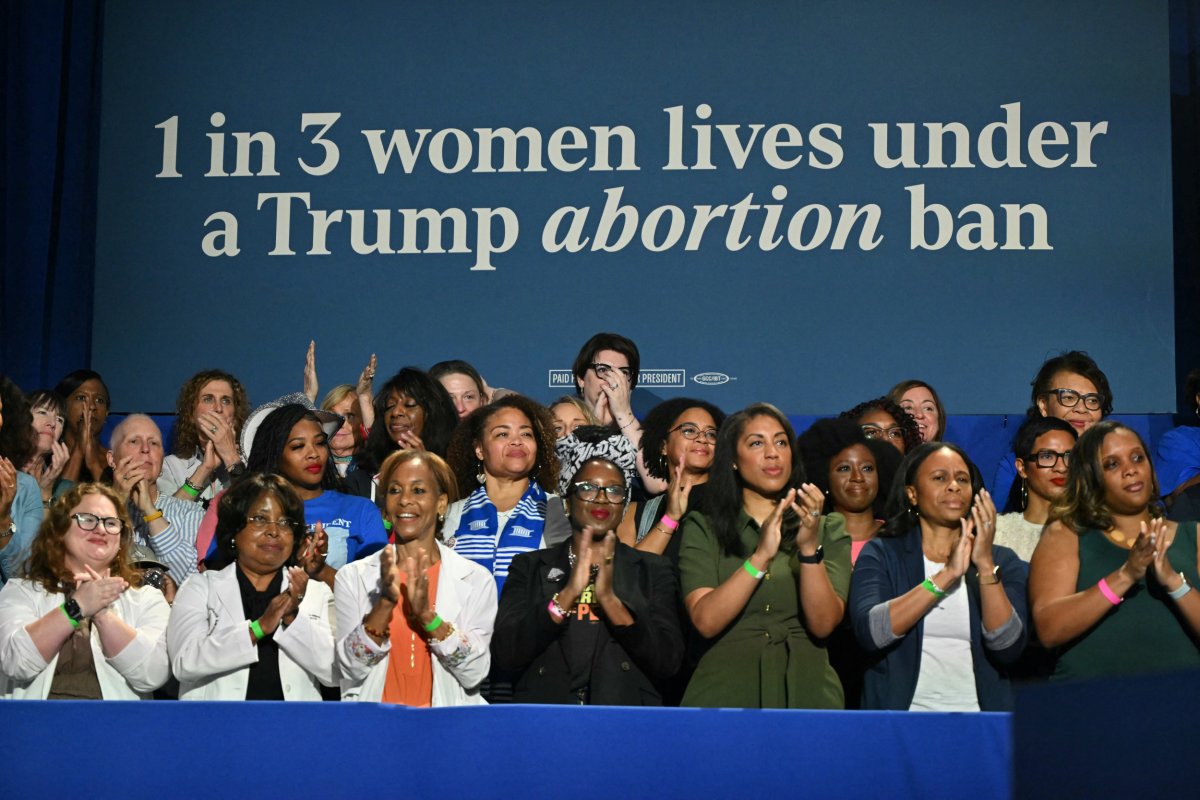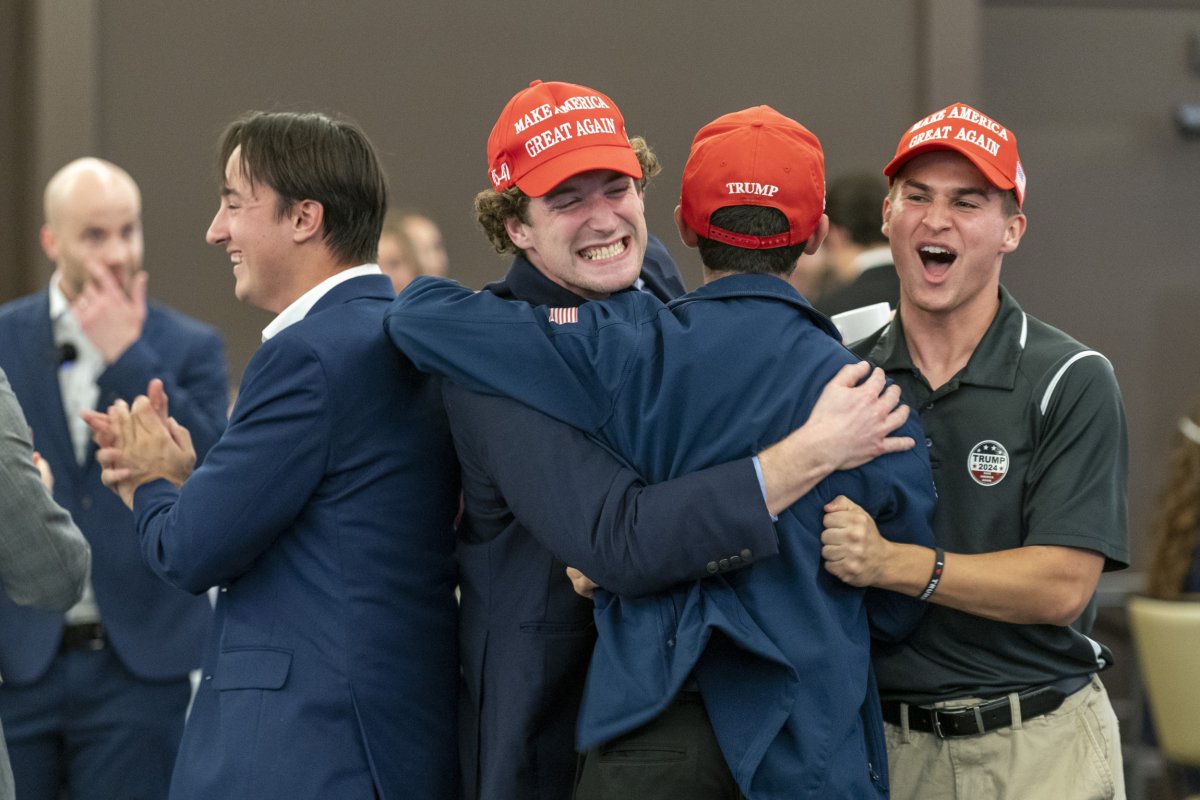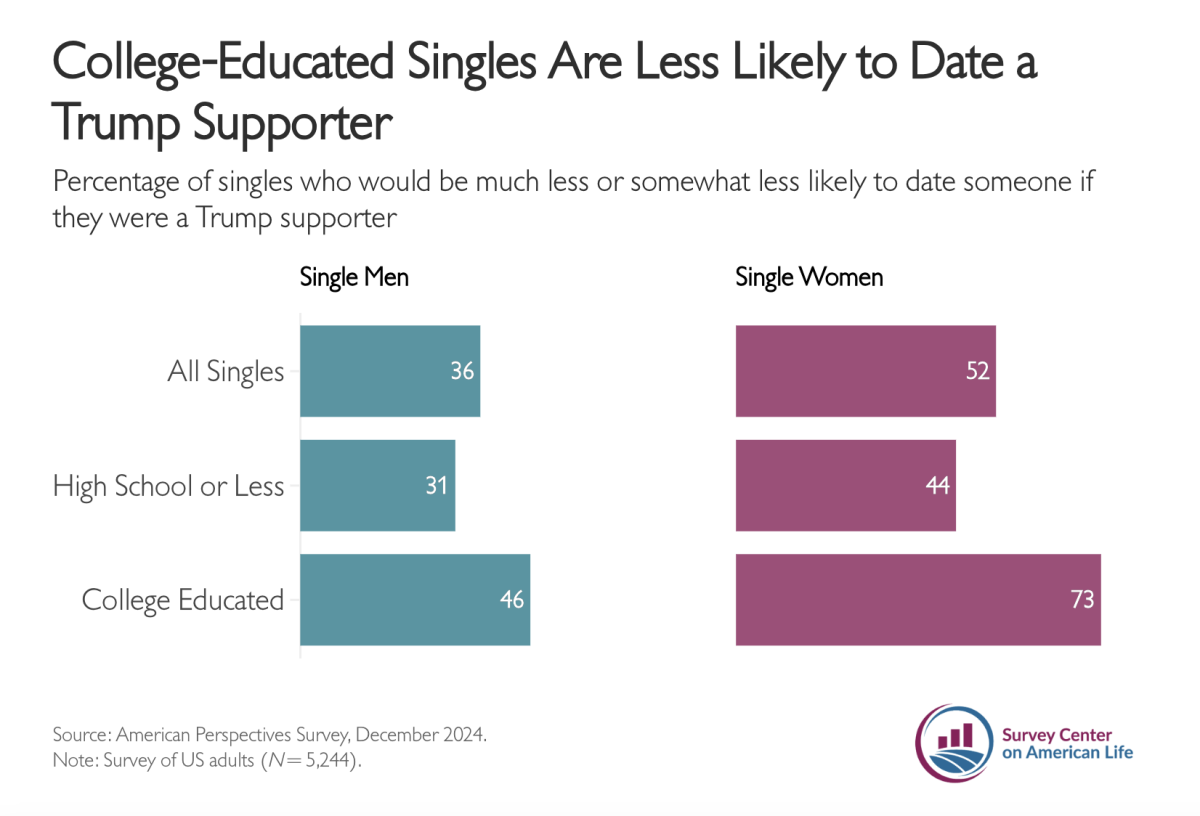Dating apps like Tinder and Hinge have radically changed the dating scene for American singles. The pool of people who are looking for romantic relationships is no longer limited to geographical borders or social circles.
Gen Z, however, presents an interesting paradox. It seems that they are becoming increasingly hesitant to date other members of their generation. The current political climate seems to be intertwined in this reluctance, which creates divisions within the social fabric.
In a survey conducted by the American Enterprise Institute in January, more than half of American women across all age groups expressed their reluctance about dating someone who supported Donald Trump. Nearly 40% of men are less likely to date a woman who identifies as a feminist.
According to one of the women surveyed, it is not a matter of politics anymore; rather it is about morals.
Gen Z Women and “Trump supporters” dealbreaker
Trump has gained a greater share of younger voters than previous Republican candidates, but this was primarily among males under 30. To put things in perspective, the Gen Z males overwhelmingly supported Trump by a margin of 13 points, while women under 30 backed Vice President Kamala Harris with an 18 point margin.

Experts claim that many young women see Trump support as “a direct assault on their rights and bodies.”
Often, young men do not have the same perception.
Speaking on this viewpoint, one expert said, “We saw so many young men who—even though they said they’re pro-choice—still voted for Trump. While they were able to do so, they noted that young women had a harder time justifying their votes.[They] “They felt that the men they trusted in their life didn’t always have their best interest at heart.”
Since the early 2000s, romantic relationships between people with differing political opinions have been less frequent. People are more hesitant to date someone who holds a different view. In a September Innerbody Research poll, 6 out of 10 Americans said that political differences are a dealbreaker for romantic relationships.
It is very difficult for young women to compromise on their ideologies. They see Trump support as an immediate threat to their freedoms.
She added: “It is one thing having a partner with whom you disagree on the amount of money you should spend on our foreign policy. It’s another thing to be with a person who doesn’t agree with you about whether or not women deserve to have bodily autonomy or whether or not women should work for pay or whether or not we should provide universal family leave and universal childcare.”

When faced with difficult choices, women are increasingly aware of the fact that men may not always act in accordance to their egalitarian values.
She said that men are willing to set aside their ideals when faced with the reality of having to decide which career they will prioritize, where to live or work if a partner gets a job in a different city or is going to college in a different place or one parent needs to take time off or stay at home.
“Even if men are saying, ‘I support these ideas.’ Women are more cautious, especially if they know that men will vote for them. [like Trump]”, she continued.
The Male Viewpoint on Dating and Feminism
Other concerns remain. While young men seem less interested in political alignment (only 36% are unwilling to date Trump supporters), they still have other worries.
Young women tend to see a man’s political views as a reflection of his character, and his stance regarding fundamental rights. However, young men often think that feminist views negatively influence how a female would treat them when they are in a romantic situation.
Experts conducting surveys on this topic have found that “the reasons varied, but for a number of men it came down to the fact they did not think a feminist will treat them well,” stated Cox who conducted the AEI survey. “That [feminists] They may have had a negative view of men and believed that they could not treat men well, regardless if in a romantic relationship.”
Some men fear being held responsible for social problems. This is a result of movements such as #MeToo. Many men believe that these movements have wrongly portrayed all men to be perpetrators. Additionally, some young men fear they’ll be excluded from second dates for simply supporting Trump.
“I’ve had men tell me things like, ‘It’s not my fault that there’s patriarchy. Janfaza told me that he didn’t want to be blamed because he was a male. They’re saying as young men they didn’t have the opportunity to support patriarchy the way generations before them did. They feel they are to blame in dating situations or social settings.
Donald Trump, Vice President JDVance and others have addressed this issue directly. Vance, while speaking at CPAC in Washington, DC, encouraged young males to embrace masculinity, and rejected messages telling them they must suppress natural desires. Vance said, “Don’t let this broken culture send you the message that you are a bad man because you tell jokes, like beer with friends, or you’re competitive.”
The vice president stated that “our culture is sending a message to our young men to suppress all masculine desires, to try and cast aside their families, to suppress the very thing that makes them young.”

Some people see this messaging as part of the “manosphere narrative” that portrays feminists and liberals to be oppressors who target men.
She said: “It is the type of message that portrays liberals and feminists as oppressors. They are the ones attacking men.”
She continued, “The reality is that men are in a precarious position within our society.” But it is not because liberals or feminists are oppressing men. We are all here because big companies and billionaires have forced us into this extremely precarious position. [do-it-yourself] The society’s model is one where people are expected to look after themselves without any social safety net. They also lack financial stability or security in the long term, health care they need and protection from unions.
What is the Potential Impact of Fertility Rates?
In line with the global trend, #fertility is declining in the United States. Centers for Disease Control and Prevention data indicates a 23% decline in birth rates nationwide between 2007 and 2012, and an additional 3% reduction in 2023. American women are currently having an average of only 1.6 kids, which is far below the “replacement” rate of 2.1 needed to maintain population levels.
Could the Baby Bust increase even more due to these high standards of potential partners?
Gen Z does not seem to be overly worried. In fact, a majority of unmarried Americans (56%) are more concerned about ending up with the wrong partner than not finding someone at all—or ending up alone, notes the AEI survey.
The same is true for half of all singles. This is more true for women than men. 55 percent of all single women are concerned about being in the wrong relationship, compared with 47 percent of men.
Cox stated, “There is no need to marry at any cost.” Very few Americans say that they feel social pressure from others to marry. “It’s much more comfortable to wait and see what happens, so they can focus their energy on other activities that are in their control, like education, careers, and friendships.
The desire for young men to be parents is now greater than that of young women.
He said that young women are more afraid of becoming parents because they fear the impact on their mental, physical and emotional well-being.
“College-educated women—who have invested a lot of energy to get to college, then to graduate—they have professional goals that they want to see realized and having kids may derail that, particularly if they have a partner who’s not supportive enough,” Cox said.
These dating preferences are markedly divided by education. According to the survey, single college educated women are more likely to date a Trump fan (73% agree) than women who do not have a degree.

Research suggests “women are more comfortable than men with the concept of raising their child alone and being independent.” The reason for this is that girls are socialized to be concerned about other people and relationships as soon as they reach the age of holding a baby doll.
The expectations of society and the upbringing that a person receives play an important role. In adulthood, women are more experienced in cultivating close, supportive emotional friendships, and they feel better qualified to be caregivers.
These boys seem to be under-prepared for independent living. Calarco explained that it is not surprising for him to find young men looking for a partner, as they are in need of someone who can take care them, because, often, they have never learned to care themselves.
Dating and Political Polarization
The controversy that erupted during the recent final election campaign was sparked by a Julia Roberts political ad, in which Roberts jokingly suggested women were able to choose Harris and not tell their husbands.
Roberts referred to reproductive rights as “the one place where American women have the right to make a choice.” You can vote however you like and nobody will know.
Voiceover: “Remember that what you do in the booth remains in the booth.”
Although intended to appeal to suburban women that wanted Trump to win, the message has not seemed to affect young Anericans who are more open and want to know what’s going on in politics.
A relationship can be hindered by a political affiliation.
Janfaza explained that many of these problems are due to the President Trump. It’s because he has such an polarizing personality. There are so many who love him, but there are also many that dislike him. There are many young people who have strong opinions about him. This is evident in dating situations.
It is a fact that the “nationalization” of politics creates a climate where youth are reminded constantly of their political differences. News broadcasts and social media updates—likely including negative information about news like assassination attemps towards political leaders—make it challenging to escape the political discourse, even when attempting to focus on a romantic connection.
The algorithms of social media platforms also contribute to the divide, as they feed young men and woman content that is drastically different, reinforcing their distinct worldviews.
Janfaza explained that “they’re going to perceive reality very differently because they are consuming different information streams.”
Cox was in agreement that women are funneled into one direction and men in a completely different direction. Online, there’s a lack of space for sharing. Social media has a segregated feel. “Even if they use the same platform they are not exposed to the exact same information.”


